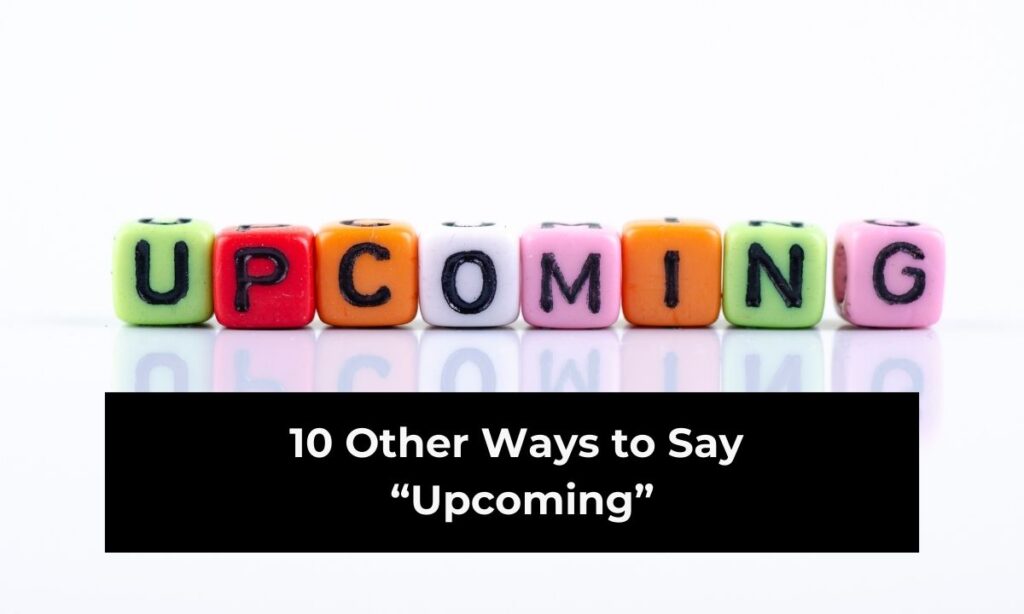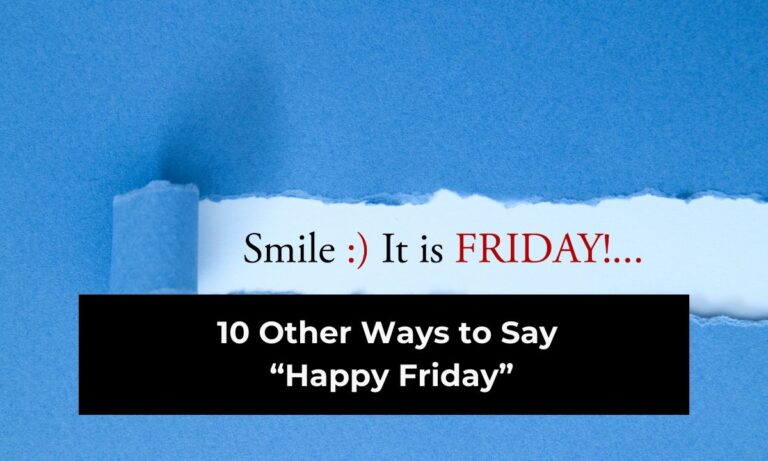When you’re writing, whether it’s for a blog, an email, a presentation, or even a casual social media update, you may notice that the word “upcoming” pops up quite a bit. It’s a simple and effective word, but if you use it too often, your writing can start to feel repetitive and a little flat. That’s why having a variety of alternatives is so helpful.
Think about it—if you’re promoting an event, announcing a launch, or simply talking about something that’s on the horizon, you want your language to feel fresh and engaging. Using the same word over and over doesn’t just bore your readers, it can also make your message feel less polished or thoughtful. When you expand your vocabulary, you’re not only making your writing more dynamic, but you’re also helping your audience connect better with your message.
The word “upcoming” often signals excitement, anticipation, or preparation for something in the near future. But depending on the tone you want to set, there are other ways to capture the same idea with more variety. Sometimes you may want to sound more professional, other times more casual, and in some cases, more inspiring. Choosing the right alternative makes all the difference.

In this guide, you’ll discover 12 other ways to say “upcoming” that will help you write with clarity and creativity. Each option includes practical explanations and real-world examples so you can confidently use them in your own writing. By the end, you’ll have a toolkit of words that not only replace “upcoming” but also elevate your communication.
1. Approaching
When you want to emphasize that something is drawing near, the word “approaching” works beautifully. It creates a sense of movement and time, highlighting that the moment is getting closer and closer.
For example, if you’re preparing for a major event, you might say, “With the approaching holiday season, it’s time to start planning your travel.” This alternative conveys both urgency and anticipation.
You can also use it in professional contexts, such as meetings, deadlines, or presentations. Saying, “The approaching deadline means our team must finalize details by tomorrow,” feels more formal than “upcoming,” making it a strong choice for workplace communication.
The word itself has a slightly more serious tone, so it works best when you want to underline importance. It’s less casual than “upcoming,” but it adds weight to what you’re talking about. When your goal is to help your reader or listener prepare mentally for something ahead, “approaching” is a reliable choice.
2. Forthcoming
The word “forthcoming” carries a polished and professional quality. It’s often used in formal announcements, newsletters, or press releases. Unlike “upcoming,” which feels straightforward, “forthcoming” sounds refined and deliberate.
For instance, you might say, “We are excited to announce our forthcoming product launch.” This alternative signals something official and planned, giving your audience confidence that it’s happening soon.
It also works well in academic or literary settings. A publisher might talk about a “forthcoming book release,” which feels more elevated than simply saying “upcoming book.”
The advantage of “forthcoming” is that it not only describes what’s ahead, but also sets a tone of credibility. If you’re writing in contexts where professionalism and trust are key—like business updates, educational content, or even formal invitations—this word will serve you better than “upcoming.”
3. Imminent
Sometimes you don’t just want to say that something is ahead—you want to stress that it’s happening very soon. That’s where “imminent” comes in.
This word communicates urgency and immediacy. For example: “With the storm’s arrival imminent, residents are being urged to take shelter.” It creates a sense of importance and time pressure.
Imminent is a strong word for situations where quick preparation is required. It works perfectly in professional settings, especially for deadlines, product rollouts, or events that are right around the corner.
Because of its tone, “imminent” isn’t always the best fit for casual conversations. Instead, think of it as your go-to option when you want to highlight urgency and importance. Using it sparingly gives it even more power, making your writing sharper and more direct.
4. Anticipated
The word “anticipated” adds a layer of excitement and expectation. While “upcoming” is neutral, “anticipated” highlights that people are actually looking forward to the event or moment.
Imagine writing, “The highly anticipated concert is just weeks away.” This doesn’t just tell your reader something is happening soon—it builds emotional connection by tapping into their excitement.
“Anticipated” is especially useful in marketing, event promotion, or any context where you want to generate buzz. Whether it’s a movie release, a big game, or a product launch, this alternative creates energy and engagement.
It also works in personal writing. If you’re talking about a family gathering, saying, “Our much-anticipated reunion will take place in June,” adds warmth and meaning to the announcement.
By choosing “anticipated” instead of “upcoming,” you shift the focus from timing to enthusiasm, making your message more memorable and appealing.
5. Pending
If you need a practical and slightly more technical alternative, consider “pending.” This word is often used in legal, administrative, or business settings.
For example, you might write, “The pending review will determine the project’s next steps.” Unlike “upcoming,” which suggests excitement, “pending” implies something is waiting to happen, often dependent on approval or final steps.
In casual writing, you could also use it to describe personal events, such as, “We have a pending move once the paperwork is finalized.” It captures the idea that something is ahead, but not fully confirmed.
The benefit of “pending” is that it adds clarity and precision. It’s ideal for formal contexts where accuracy is more important than tone. If you want your communication to sound clear and authoritative, “pending” is a strong alternative.
6. Next
Sometimes the simplest word is the most effective. “Next” is a short, powerful alternative to “upcoming” that works in almost any situation.
You might say, “Next week, we’ll share the results,” or “Our next event is scheduled for March.” It feels natural, easy to understand, and conversational.
The beauty of “next” lies in its flexibility. It can be casual enough for everyday conversations and still professional enough for workplace updates. It’s also a word your audience won’t have to pause and think about—it communicates timing instantly.
If your goal is clarity and accessibility, “next” is one of the strongest alternatives to “upcoming.” It doesn’t overcomplicate your writing, yet it still avoids unnecessary repetition.
7. On the Horizon
For a more creative and visual alternative, try the phrase “on the horizon.” This expression paints a picture of something appearing in the distance, gradually making its way toward you.
For instance, “With new opportunities on the horizon, it’s an exciting time for our team.” This phrase doesn’t just mark timing—it sparks imagination and adds an optimistic tone.
It’s a wonderful choice when you want your language to feel inspiring or forward-looking. Whether you’re writing about personal goals, business plans, or community events, “on the horizon” feels fresh and motivating.
While it may not always fit into very formal communication, it shines in blogs, social posts, or newsletters where you want to connect with your audience in a more engaging way.
8. Eventual
Sometimes you may want to highlight that something is not immediate but still ahead in the future. That’s where “eventual” comes in.
For example, “The eventual rollout of the policy will affect all employees.” It signals that the event is certain, but not necessarily near.
This alternative is helpful when you want to set expectations clearly. It avoids confusion by showing that something is planned but may take time to happen.
In personal writing, you might say, “Our eventual move to a new city is something we’ve been planning for years.” It conveys patience and certainty at the same time.
“Eventual” is best when you want to keep your audience informed about long-term changes without creating unnecessary urgency.
9. Nearing
The word “nearing” communicates closeness in time, much like “approaching,” but with a softer tone.
For example, “We are nearing the end of the semester.” It gives your message a sense of progress and completion.
This alternative is useful when you want to create a balance between anticipation and calmness. Unlike “imminent,” which feels urgent, “nearing” is more relaxed.
In everyday use, you might say, “With the holidays nearing, it’s time to start shopping.” It’s simple, natural, and easy to understand.
By using “nearing,” you keep your writing approachable and relatable, making it a versatile alternative in both casual and professional contexts.
10. Scheduled
When precision and organization are important, “scheduled” is one of the best alternatives to “upcoming.”
For example, “The scheduled meeting will take place at 3 PM tomorrow.” This wording leaves no doubt about timing, showing that the event is firmly set and planned.
It’s especially effective in professional communication where clarity is key. If you’re coordinating projects, classes, or events, “scheduled” is a reliable word that communicates structure and certainty.
Even in casual use, such as, “Our scheduled family dinner is this Saturday,” it feels reassuring and definite.
The advantage of “scheduled” is that it avoids vagueness. It doesn’t just tell your audience something is coming—it tells them it’s locked into place.
11. Drawing Near
Like “on the horizon,” the phrase “drawing near” is a more descriptive and expressive alternative to “upcoming.”
You might write, “With the festival drawing near, the excitement in the community is building.” It adds warmth and color to your writing, making it more engaging.
This phrase works beautifully in storytelling, speeches, or announcements where you want to inspire anticipation. It doesn’t just tell people something is close—it makes them feel it.
In personal contexts, you could say, “Our anniversary is drawing near, and I can’t wait to celebrate.” It’s intimate, expressive, and heartfelt.
“Drawing near” is best for situations where you want to build atmosphere and capture emotion while still communicating timing.
12. Upcoming in Advance
If you want an alternative that feels modern and promotional, the phrase “coming soon” is a perfect choice. It’s often used in advertising, marketing campaigns, and entertainment industries.
For example, “Coming soon: our latest collection of summer wear.” This phrase creates curiosity and builds anticipation in a way that feels inviting and exciting.
It’s especially powerful for generating buzz online, where attention spans are short. Instead of just announcing that something is upcoming, “coming soon” teases your audience and leaves them wanting more.
This phrase is casual, engaging, and universally understood. It might not work well in very formal settings, but for creative communication, it’s hard to beat.
Conclusion
Words shape how your audience feels about what you’re sharing. While “upcoming” is a reliable word, relying on it too much can make your writing repetitive and uninspired. By exploring alternatives like approaching, forthcoming, imminent, anticipated, pending, next, on the horizon, eventual, nearing, scheduled, drawing near, and coming soon, you can bring more variety, energy, and clarity to your communication.
Each of these options offers a slightly different tone—from professional to casual, urgent to inspiring. The key is choosing the one that best matches the context and emotion you want to convey. Whether you’re promoting an event, setting a deadline, or simply talking about the future, these alternatives help you connect with your audience more effectively.
So the next time you’re tempted to use “upcoming,” pause and consider what you really want to express. With this toolkit of words, you’ll never run out of fresh and impactful ways to talk about what lies ahead.
FAQs
1. What is a formal alternative to “upcoming”?
“Forthcoming” and “scheduled” are excellent formal alternatives, perfect for business or academic communication.
2. Which word is best for casual conversations?
“Next” and “coming soon” are simple, natural choices for everyday use.
3. What’s the best alternative if I want to stress urgency?
Use “imminent” or “approaching” when you want to highlight that something is happening very soon.
4. Can I use “anticipated” in professional writing?
Yes. “Anticipated” is both professional and engaging, making it ideal for promotions or announcements.
5. What phrase works best for storytelling or creative writing?
“On the horizon” and “drawing near” add imagery and emotion, making them perfect for more descriptive writing.





